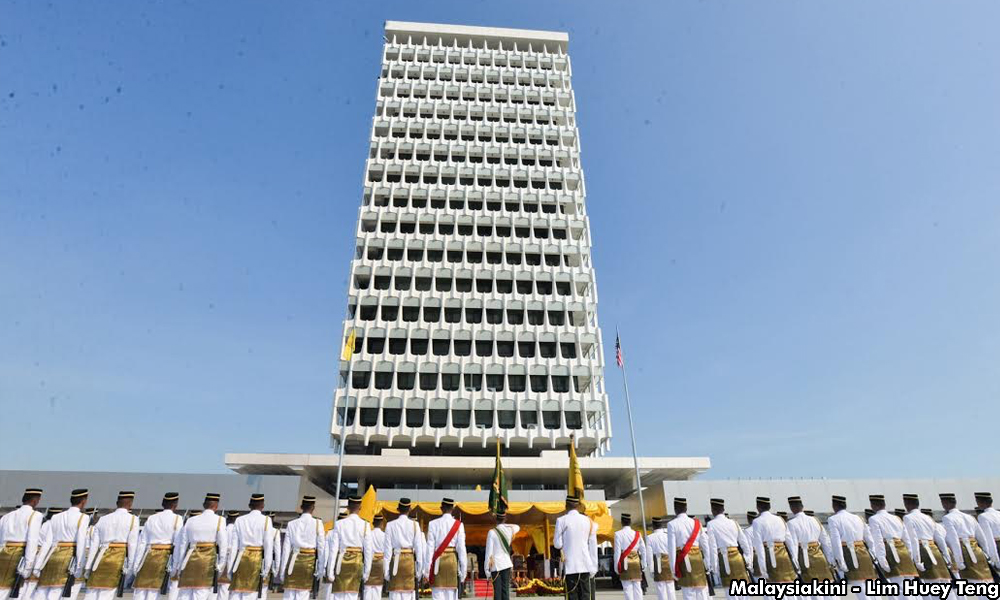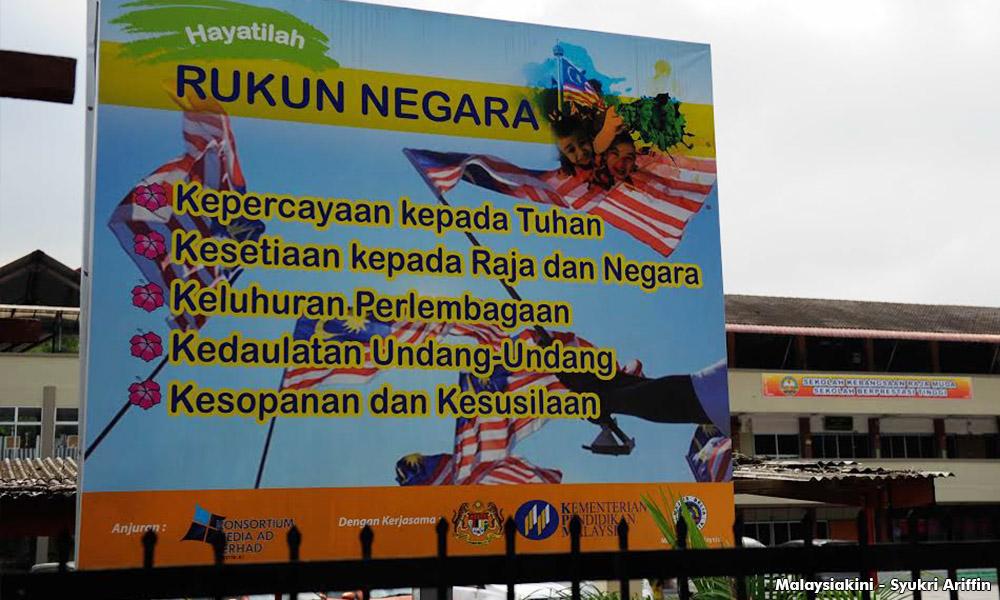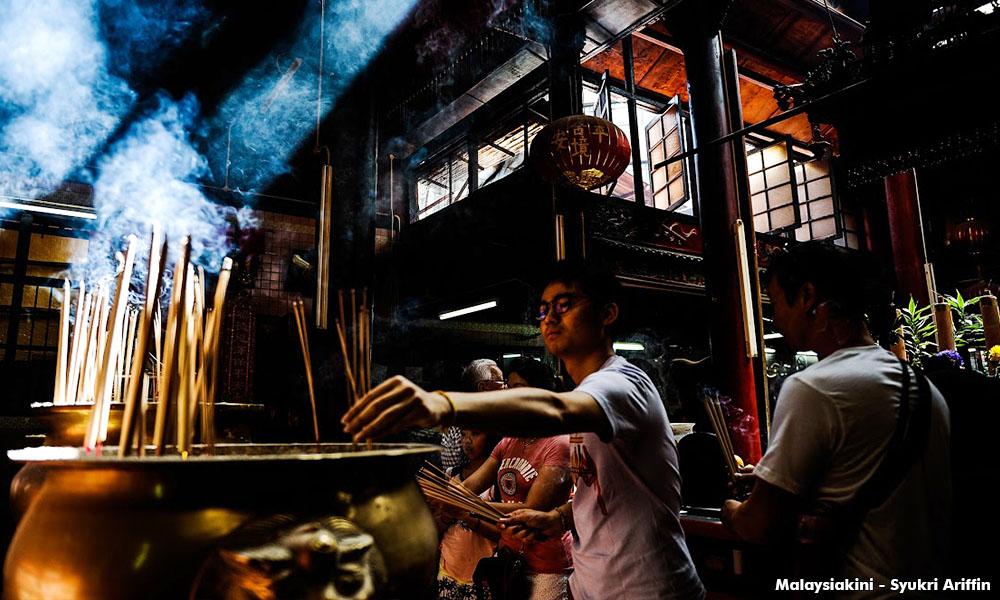
“Faith - strong belief in the doctrines of a religion, based on spiritual conviction rather than proof.”
- Oxford English Dictionary
QUESTION TIME | It is indisputable that religion is based on faith rather than proof which is why it is such a contentious issue among humankind from time immemorial.
Many wars have been fought over religion, countless people killed, untold suffering perpetrated through persecution of those who believe and of those who do not, etc.
But there is only one law that will save all religions and give people the right to practice what they want to, free and unfettered. That is secular law - yes, that’s right, secular law.
No, it’s not a contradiction in terms - only secular laws do not give a damn what religion you belong to and they treat you the same whether you believe or not, or whether you believe in this or that.
There is, or should be, only one caveat – that what you do in furtherance of your belief or non-belief does not impinge on the lawful and constitutional rights of other believers or non-believers to do what they believe is right and within their personal rights.
That’s what civilised countries do these days, having come a long way from centuries past.
We are told that our constitution guarantees freedom of religion for all and we know that was the original intention of the constitution on top of ensuring that the constitution is secular. This comes from no less than our founding father, Tunku Abdul Rahman, the first prime minister of Malaysia.
That means that anyone is free to practice any religion he wants to and that the practices of one religion will NOT be imposed on all. That also means, by clear implication, that if one does not want to believe in any one religion or even in God, he has the right to do so. You can’t force a person to believe something he does not.
The five-point Rukun Negara, modelled on Indonesia’s Pancasila first articulated by former Indonesian president Sukarno, has as its first point “Belief in God”.

The Rukun Negara, roughly translated as “National Principles” was first introduced in Malaysia in 1970 after the May 1969 riots to help build national solidarity and unity.
However, belief, being an article of faith, cannot be legislated or required of a citizen. It is what you feel inside you about something - a judgement you make because you don’t have all the facts.
In respect of religion, the Oxford dictionary defines “faith” as “strong belief in the doctrines of a religion, based on spiritual conviction rather than proof”. It is something which is not provable.
If a religious teacher exhorts to you that God, whatever the form that your belief or non-belief dictates, requires you to do this or that or says that this is the true faith, there is no way he can demonstrate that.
He does not have a recording of God’s instruction, an e-mail or WhatsApp message, a picture of God or even a written piece of paper. You believe him on faith, nothing more, or based on a book which no one can prove actually was written by God.
You believe (if you do, that is) that it was/is the word of God.
A plethora of faiths
So you have many religions, a plethora of faiths and a surfeit of those who claim that their way is the only true pathway to that one God or many as the case may be.
And you, confused by all the choice there is, and probably overwhelmed by it, you have the privilege of deciding what you want to take as your own belief or some mixture thereof.
That is the freedom of choice - you choose to believe one of them or even none of them. And you can believe all of them and no one can stop you, especially if you don’t state publicly what you believe and make your choice in private, quietly without fanfare to avoid ridicule.
Secularism lets you make that choice - in peace, without having to pay a price neither for your faith nor the lack of it.
But the moment your country becomes a religious state - it does not matter what religion it is - then it automatically promotes the beliefs, tenets and practices of just one religion and other religions become anathema to this one religion even though the constitution says other religions can be practised in peace and without any interference.
So-called secular law becomes more and more skewed towards one religion, secular court judgments become increasingly skewed towards one religion and secular courts refrain from making a stand on the freedom of religion that is guaranteed under the constitution for all.

But when a government uses religion thus to drive rifts through the various communities in our country, some two-fifths of whom practice minority religions, they are taking things too far.
When they encourage the extremists within that one favoured religion, by standing aside and watching, as scorn and insult are heaped on other religion and provocations made, they deserve not to be trusted. It becomes obvious that they are using religion to gain votes by splitting up communities.
When they allow increasing control by religious authorities on those who profess the religion, that is a prime example of how the masses are controlled by controlling the way they practice their religion - their behaviour.
Who can know, how God (if he/she exists) meant for human beings to live on Earth before they ascend to heaven or descend to hell?
What gives these religious leaders the right to lord it over their flock as if they do not have the ability to read the holy books for themselves, interpret them and decide what they want to practice or not practice? Or whether they want to remain in the religion or not?
The rightful role of the state is to ensure religious freedom for all, not give an advantage to particular religions. It should involve, too, the requirements to stop proselytising especially where it involves gratifications of any kind for conversion and ridiculing other religions and practices.
Unfortunately, it’s not quite clear where both parties - the ruling and the opposition - are in respect to the important election issue of religion. But it looks like, on balance, the opposition - as tangled and ambiguous as it is in these matters - is likely to be somewhat more liberal.
The less the state gets involved in religion the better it is for all. Religion is, after all, an intensely personal matter based more on individual faith than anything else.
P GUNASEGARAM has said this before: more sins are committed in the name of religion than almost anything else. E-mail him at: t.p.guna@gamail.com. -Mkini


No comments:
Post a Comment
Note: Only a member of this blog may post a comment.